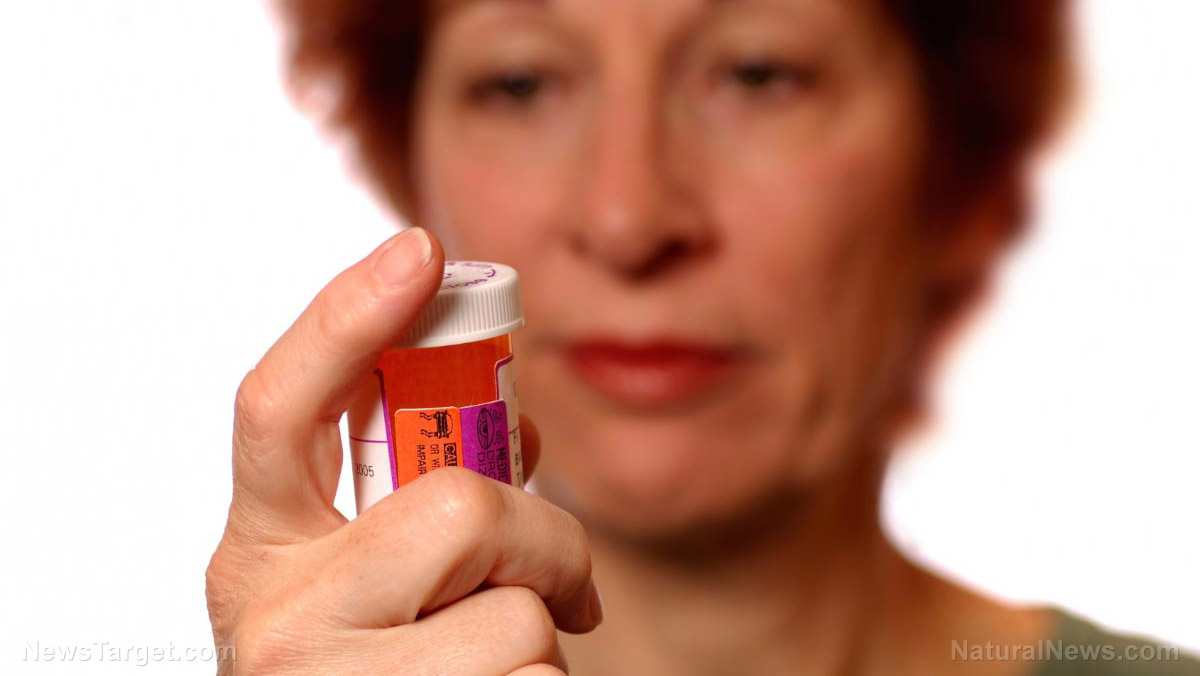Take this happy pill: Deficiency in vitamin D is linked to depression among urban Malaysian women
01/21/2019 / By Zoey Sky

Vitamin D is often associated with calcium and bone growth, but according to a study, a vitamin D deficiency may also be linked to depressive symptoms in urban Malaysian women.
The study, which was published in the journal Public Health Nutrition, was conducted by scientists from the Julius Centre University of Malaya (JCUM).
Depression and vitamin D deficiency
Based on the study findings, over 70 percent of the urban Malaysian women surveyed were vitamin D deficient. The women also reported that they perceive themselves as depressed.
In humans, the main source of vitamin D is through synthesis by the skin that is exposed to ultra-violet ray from sunlight. Researchers posit that women of Malay and Indian ethnicity were more prone to being vitamin D deficient, probably because of “darker skin pigmentation, clothing styles constrained by religion, and aesthetic preference for fairer skin.” (Related: The most important vitamins for beating depression.)
Listed below are some of the signs of vitamin D deficiency:
- Back or bone pain
- Getting sick or infected often
- Hair loss
- Loss of bone density
- Muscle pain
- Slow healing of wounds
In Western studies, results have determined a connection between vitamin D deficiency and depressive symptoms. To date, no similar studies have been conducted in tropical countries with abundant sunshine, such as Malaysia.
Earlier local studies suggest that more Malaysian women were vitamin D deficient, and the results of this study corroborate the previous findings. This study is also the first of its kind to identify a link between vitamin D deficiency and depressive symptoms in Malaysia.
The research team advised that vitamin D deficiencies can be resolved through the following suggestions for public health authorities:
- Encouraging the use of vitamin D supplements for those who have deficiencies.
- Healthy sun exposure recommendations.
- The routine screening of vitamin D status.
- Vitamin D food forti?cation programs.
Dr. Moy Foong Ming, the study’s lead author, considers the results of the study alarming. Dr. Ming added that the study findings highlight the need to immediately resolve the situation, especially since these women could be at risk of postmenopausal osteoporosis as they grow older. Vitamin D is also associated with a higher risk of developing cardiovascular diseases.
Vitamin D-rich foods to add to your diet
If you want to keep your teeth and bones healthy and lower your risk of developing depression, consume more of the vitamin D-rich foods listed below:
- Cheese
- Cow milk
- Egg yolks
- Fatty fish
- Fish oil
- Mushrooms
- Oatmeal
- Orange juice
- Oysters
- Shrimp
- Soy milk
- Yogurt
Tips to manage depression
If you already have depression, consider undergoing psychotherapy to manage your condition. For depression related to a vitamin D deficiency, increase your vitamin D intake to address your symptoms. Always consult a healthcare professional before you take supplements.
You can also try to manage your depression by trying out some of the lifestyle changes listed below:
- Exercise regularly. Regular exercises can minimize the symptoms of depression by promoting the release of endorphins or other “feel-good” chemicals in your brain. Physical activity can also help reduce immune system chemicals that worsen depression. You can start with 30 minutes of cardio thrice a week, then add on days and minutes as needed.
- Follow a regular sleep schedule. Sleep issues like hypersomnia and insomnia are often associated with depression, but you can address these symptoms by following a regular sleep schedule. Set a sleep and wake alarm, or use a journal to track how many hours you sleep and sleep quality.
- Join a support group. A support group gives you a chance to connect with other people, whether online, by phone, or in your community, who are going through the same thing.
- Talk to your loved ones. When your symptoms are at their worst, your family and friends can help you stay strong. Be transparent with your loved ones and let them know how they can help. Tell them when their actions are not helpful to your treatment plan, so your condition doesn’t worsen.
Learn more about the effects of vitamin D to sleep and overall health by visiting VitaminD.news.
Sources include:
Tagged Under: depression, mental health, natural cures, natural health, natural remedies, nutrition, Public Health, stress, vitamin D, women's health



















